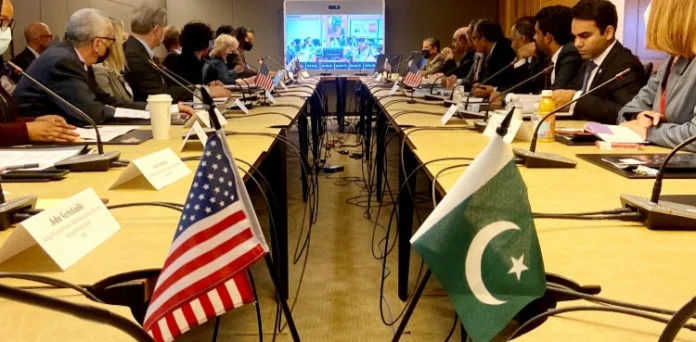Islamabad, April 04: The US government has expressed concerns about Pakistan’s trade and investment policies, citing their negative impact on American businesses, particularly after US President Donald Trump imposed a 29% reciprocal tariff on Pakistan.
According to a report titled 2025 National Trade Estimate Report on Foreign Trade Barriers, US companies have raised issues with high tariff rates and, in some instances, additional duties imposed on products like automobiles and finished goods in Pakistan.
The report highlights that US exporters in Pakistan face challenges such as inconsistent customs valuation, excessive documentation requirements, and penalties arising from outdated invoicing rules, increasing the compliance burden for businesses.
The report also mentioned that US companies have been adversely affected by Customs Rules 389 and 391.
Rule 389 mandates placing a physical invoice and packing list in shipping containers, while Rule 391 holds the goods owner and carrier liable for failure to comply with these documentation requirements.
These regulations create difficulties for companies using intermediaries, re-invoicing, or storing goods during transit.
US Companies Face
Additionally, US companies have encountered foreign exchange restrictions and bureaucratic barriers in Pakistan, making it difficult to repatriate profits and dividends.
Read More: Pakistan and US Agree to Schedule Key Talks on Trade and Investment
These challenges have generally coincided with the Pakistani government’s focus on limiting US dollar outflows. However, conditions improved in 2024, as Pakistan’s balance of payments position stabilized.
The report also noted that US companies have faced increased pressure from Pakistan’s Federal Board of Revenue (FBR) to prepay anticipated tax liabilities.
Companies expressed concerns that many of their local competitors either do not pay taxes or engage in tax evasion.
The US government has repeatedly raised these issues with Pakistan, urging the country to broaden its tax base.
Also Read: US Imposes Trade Restrictions on Pakistani and Chinese Entities
Furthermore, Pakistan remains on the US Special 301 Watch List due to weak enforcement of intellectual property (IP) laws, rising counterfeiting, and inconsistent rulings by IP tribunals.
Despite gradual improvements in coordinating IP enforcement and updating IP laws, serious concerns persist, particularly in IP enforcement.
US companies have also cited corruption and a weak judicial system as significant deterrents to foreign investment in Pakistan.
